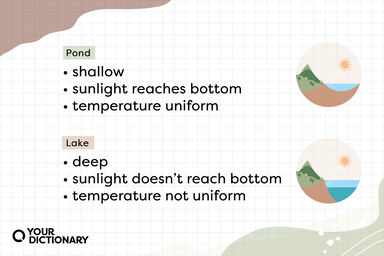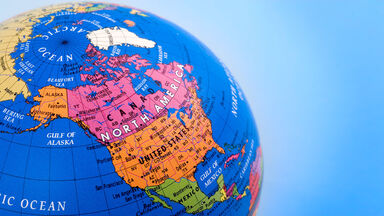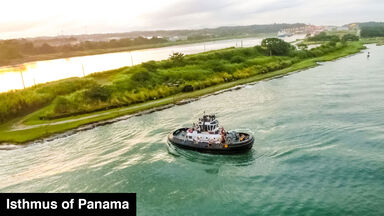Lake Definition
Origin of Lake
-
From Middle English lake (“lake, watercourse, body of water”), from Old English lacu (“lake, pond, pool, stream, watercourse”), from Proto-Germanic *lakō, *lōkiz (“stream, pool, water aggregation", originally "ditch, drainage, seep”), from Proto-Germanic *lekaną (“to leak, drain”), from Proto-Indo-European *leg-, *leǵ- (“to leak”). Cognate with Scots lake (“pond, pool, flowing water of a stream”), Dutch laak (“lake, pond, stream”), Middle Low German lāke (“standing water, water pooled in a riverbed”), German Lache (“pool, puddle”), Icelandic lækur (“stream, brook, flow”). See also leak, leach.
From Wiktionary
-
Despite their similarity in form and meaning, English lake is not related to Latin lacus (“hollow, lake, pond”), Scottish Gaelic loch (“lake”), Ancient Greek λάκκος (lákkos, “waterhole, tank, pond, pit”), all from Proto-Indo-European *lakʷ- (“lake, pool”). Instead, this root is represented by Old English lagu (“sea, flood, water, ocean”), through Proto-Germanic *laguz, *lahō (“sea, water”), perhaps related to Albanian lag (“to water, make wet, moisturize”). See lay.
From Wiktionary
-
From Middle English lake, lak, lac (also loke, laik, layke), from Old English lāc (“play, sport, strife, battle, sacrifice, offering, gift, present, booty, message”), from Proto-Germanic *laiką (“play, fight”), *laikaz (“game, dance, hymn, sport”), from Proto-Indo-European *loig-, *leig- (“to bounce, shake, tremble”). Cognate with Old High German leih (“song, melody, music”) and Albanian luaj (“I move, play”). More at lay.
From Wiktionary
-
From French laque (“lacquer”), from Persian لاک (lāk), from Hindi lakh, from Sanskrit laksha (“one hundred thousand”), referring to the number of insects that gather on the trees and make the resin seep out.
From Wiktionary
Middle English from Old French lac and from Old English lacu both from Latin lacus
From American Heritage Dictionary of the English Language, 5th Edition
-
From French laque lac1
From American Heritage Dictionary of the English Language, 5th Edition
From Old English lachen
From Wiktionary
-
Compare lek.
From Wiktionary
Find Similar Words
Find similar words to lake using the buttons below.





